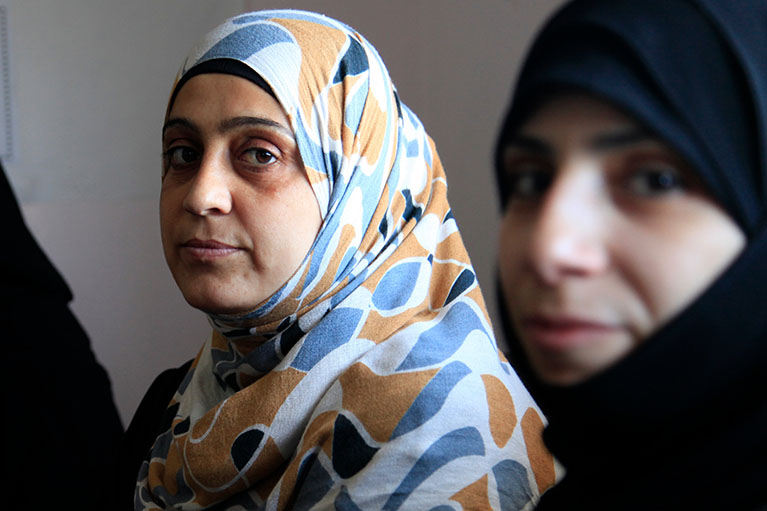The torture of Syrian woman Manal al-Arabi, 30, by her husband Mahmoud Miqati, 35, in the southern Turkish city of Kahramanmaras shook the Syrian and Turkish public alike.
Miqati, who fled from Turkish police, is reported to have tortured his wife for 15 days before she was able to flee the house with her youngest child, seeking refuge with her neighbors. For over two weeks, Miqati is said to have struck his wife with metal skewers, put out more than 100 cigarettes on her body, and poured boiling oil on her in front of her children, with tape over her mouth so she didn’t scream.
The incident was met with widespread condemnation, especially as the mother of five was subjected to violence from her husband throughout their marriage without help from anyone.
Increasing incidents
Over the last six years, cases of violence against Syrian women at the hands of their husbands or relatives have increased. A study published in 2016 said that 67 percent of women in Syria were punished by their husbands in front of family members, with 87 percent of those women saying the punishment came in the form of physical violence.
The most important factors behind this may be the economic circumstances, psychological pressures, lack of education and loss of security. Social customs in Syrian society also accept men striking their wives or sisters.
Regarding Syrian law, the penal code stipulates that husbands disciplining their wives in a form permitted by general custom is not a crime and is permitted by law.
There is no explicit text criminalizing the hitting women, although it does punish causing a pregnant woman's miscarriage when in knowledge of the pregnancy.
However, it does not place legal controls protecting women from domestic violence, which has strengthened a culture of the husband, father or brother’s “right” to strike a woman.
Some men in Syria have become accustomed to using violence against a wife, sister or daughter, given that disciplining a woman is the man’s right and one of the features of manhood. He is strengthened in this by the acceptance of women in many cases, who do not consider it a problem worthy of divorce in a society which urges her to bear the anger of the husband, brother or father.
Silence in the face of beatings
“I was not able to do anything, even though it was happening in front of me and provoked me a great deal, especially given that the woman was crying faintly and silently without being about to do anything to her monstrous husband,” one woman named Seham told Alsouria Net.
She described an incident which occurred in Istanbul in front of her with a Syrian man beating his wife and insulting her in front of people.
“He started to scream at her and pushed her violently, demanding she get down from the bus after taking her two children who were crying in fear. This pushed passengers to defend the woman, who was being insulted in front of them in words they didn’t understand, and even forced the man to get out of the bus with his wife and children.”
Seham added: “I don’t know what happened to the woman afterward and how this failure of a man poured out his anger on her without respecting her or her children, but I felt great sorrow and even shame that I am a Syrian woman like her.”
Another Syrian, Samer, told Alsouria Net: “There are men who think that power is beating, and in the district where I live in Istanbul I’ve heard more than once Syrian men screaming in harsh words at his wife and children in a way that makes passersby stop to look for the source of the fighting.”
Despite the fact that Turkish laws prohibit all forms of violence against women, and the recent jailing of a Turkish man for four years for beating a woman because of her clothes, Syrian women in Turkey have not found anything to defend them from the violence they are subjected to by family members or husbands, for a variety of reasons.
According to Alaa, a social researcher, many women do not want to inform authorities about beatings which they are subjected to by husbands because of shame and a sense of humiliation, in addition to a lack of desire to destroy their family and displace their children.
She added: "There are Syrian women who also marry Turks, but as a second wife, which means that their marriages are not registered because Turkey prohibits polygamy, which prevents them from securing their rights, or even the ability to defend themselves in the event they are subjected to spousal abuse."
Regarding women’s organizations' work, she continued: “The organizations concerned with women and their affairs are not giving this matter real importance, and all they offer is psychological support, and in the best cases simple legal advice. But there is no program working on protecting women from abuse from their spouses.”
This article was translated and edited by The Syrian Observer. Responsibility for the information and views set out in this article lies entirely with the author.


